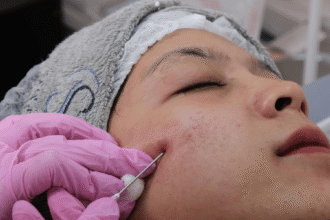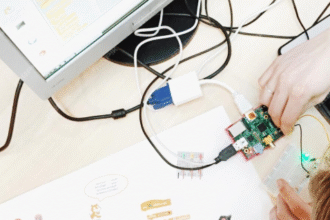Postoperative recovery is a critical phase in the surgical care continuum, often determining the overall success of a procedure and the patient’s long-term outcomes. Delays or complications during recovery can lead to extended hospital stays, increased readmission rates, and reduced patient satisfaction. To address these challenges, healthcare systems are increasingly turning to nurse-led protocols that standardize care, enhance communication, and promote faster, safer recovery. For advanced practice nursing students looking for dnp capstone project help, implementing or evaluating these protocols offers a strong, evidence-based focus for a DNP capstone project that aligns with clinical practice improvement and patient-centered outcomes.
The Role of Nurse-Led Protocols in Postoperative Care
Nurse-led protocols are structured, evidence-based care pathways initiated and managed by nurses to optimize patient recovery after surgery. These protocols are often part of enhanced recovery after surgery (ERAS) programs and include interventions such as early mobilization, pain management, nutrition optimization, wound care, and discharge planning.
Nurses are in a unique position to lead postoperative care initiatives due to their continuous presence at the bedside, their comprehensive understanding of patient needs, and their ability to coordinate interdisciplinary care. By leading and standardizing recovery practices, nurses can reduce variability in care, identify complications early, and facilitate smoother transitions from hospital to home.
Benefits of Nurse-Led Postoperative Protocols
Numerous studies have shown that nurse-led protocols can significantly improve postoperative outcomes. Key benefits include:
- Faster Recovery Times
Protocols that promote early ambulation, progressive diet advancement, and adequate hydration lead to quicker return of bowel function, improved strength, and shorter hospital stays. - Reduced Complication Rates
Standardized monitoring and early intervention help prevent complications such as infections, deep vein thrombosis (DVT), pneumonia, and pressure injuries. - Improved Pain Management
Multimodal pain management strategies led by nurses help patients achieve adequate pain control while minimizing opioid use. - Higher Patient Satisfaction
Consistent communication, education, and involvement in recovery plans contribute to improved patient experiences and satisfaction. - Cost Savings for Healthcare Systems
By reducing length of stay, readmissions, and complications, nurse-led protocols can also contribute to significant cost savings.
Core Components of Effective Nurse-Led Recovery Protocols
While protocols vary by surgical specialty, several core components are common across most evidence-based nurse-led programs:
- Preoperative Education
Teaching patients what to expect after surgery helps reduce anxiety and prepares them to actively participate in their recovery. - Early Mobilization
Nurses encourage patients to get out of bed and walk as early as the day of surgery to prevent complications and promote healing. - Nutrition and Hydration
Early resumption of oral intake, tailored to patient tolerance, supports gastrointestinal recovery and overall healing. - Pain and Nausea Management
Nurses administer and monitor multimodal analgesia, adjusting treatment based on patient feedback and clinical assessments. - Monitoring for Complications
Vital signs, wound assessments, and lab results are monitored closely by nursing staff to detect any early signs of postoperative issues. - Discharge Planning and Follow-Up
Education on wound care, medication adherence, and warning signs, as well as coordination of follow-up appointments, are critical to a smooth transition home.
DNP Capstone Project Opportunities
For those seeking DNP capstone project help, nurse-led postoperative recovery protocols offer a range of project ideas with measurable, impactful outcomes. Here are a few examples of how this topic could be translated into a dnp capstone project:
- Implementing a Nurse-Led Early Ambulation Protocol
Measure outcomes such as postoperative complications, mobility status at discharge, and length of stay before and after protocol implementation. - Evaluating a Multimodal Pain Management Strategy
Compare opioid usage and patient-reported pain scores with and without a nurse-managed pain protocol. - Developing a Postoperative Education Program
Create and implement standardized patient education materials and evaluate their effect on patient satisfaction and readmission rates. - Improving Postoperative Monitoring in High-Risk Populations
Design a targeted nursing protocol for high-risk surgical patients (e.g., elderly, diabetic) to enhance early detection of complications.
These projects align closely with the DNP Essentials, particularly in clinical scholarship, leadership, and systems-level change.
Challenges and Considerations
Implementing nurse-led protocols is not without challenges. Common barriers include:
- Resistance to Change
Staff may be hesitant to adopt new protocols, especially if they perceive them as increasing workload. - Training and Competency
Nurses must be adequately trained and supported to lead these protocols effectively. - Interdisciplinary Collaboration
Success depends on collaboration between surgeons, anesthesiologists, physical therapists, and other members of the care team. - Documentation and Data Tracking
Reliable systems must be in place to document interventions and track outcomes.
DNP-prepared nurses are uniquely equipped to address these challenges through change management, quality improvement methodologies, and clinical leadership.
Conclusion
Nurse-led protocols have the potential to transform postoperative care by promoting faster recovery, reducing complications, and improving patient satisfaction. These protocols empower nurses to lead high-impact clinical initiatives based on the latest evidence. For DNP students, this area offers a rich opportunity to drive innovation and improve care quality. If you’re looking for DNP capstone project help, consider how implementing or refining a postoperative recovery protocol can serve as a meaningful and measurable DNP capstone project—benefiting both your professional growth and your patients’ health outcomes.

















